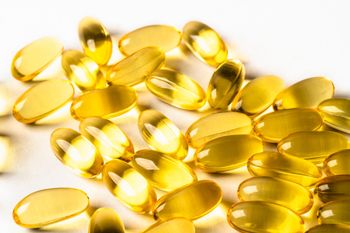
Omega-3 Compound Reduces Inflammation in Cystic Fibrosis Patients in New Pilot Study
In the pilot study, MaxSimil increased omega-3 red blood cell levels, moderated the ratio of arachidonic acid (AA) to docosahexaenoic acid (DHA), and reduced key inflammatory biomarkers in subjects with cystic fibrosis.
A marine omega-3 compound comprising a docosahexaenoic acid (DHA) sn1-monoacylglyceride (MAG-DHA) may act as an anti-inflammatory for subjects with cystic fibrosis, according to a new pilot study1 published in the journal Marine Drugs. In the study, MaxSimil (Neptune Wellness Solutions; Laval, QC, Canada) increased omega-3 red blood cell levels, helped moderate the ratio of arachidonic acid (AA) to docosahexaenoic acid, and reduced key inflammatory biomarkers in subjects with cystic fibrosis.
Cystic fibrosis is a hereditary disorder affecting the exocrine glands. It promotes production of thick mucus, leading to the blockage of the pancreatic ducts, intestines, and bronchi, which can result in respiratory infection. Subjects diagnosed with cystic fibrosis generally suffer from pancreatic insufficiency, says Neptune, which “prevents the proper production of enzymes the body requires to break down and absorb nutrients and dietary fatty acids.” The lack of digestion enzymes can also lead to fat malabsorption and malnutrition, the company says.
At the same time, conditions that lead to issues with fat absorption have been associated with essential fatty acid deficiency. Cystic fibrosis patients, says the company, are especially susceptible to essential fatty acid deficiency. In addition, cystic fibrosis patients also frequently experience a decrease in linoleic acid and DHA, and an increase in AA. This imbalance in the AA/DHA ratio in favor of AA may contribute to an increase in inflammation, it says.
In the current study, the researchers write that while omega-3 polyunsaturated fatty acid supplements are believed to help improve essential fatty acid deficiency, as well as reduce inflammation in subjects with cystic fibrosis, there are no existing clinical studies on its efficacy. With this in mind, the researchers sought to further explore the potential effects of a marine omega-3 compound, MaxSimil, on red blood cells fatty acid profile as well as on the levels of inflammatory biomarkers in a population with cystic fibrosis.
The randomized, placebo-controlled study included fifteen outpatients with cystic fibrosis between the ages of 18-48. Researchers supplemented the subjects with a daily dose of either eight 625 mg MaxSimil or a sunflower oil placebo for a total study period of 60 days. Blood samples were collected at baseline, at 30 days, and finally at 60 days following supplementation. The researchers determined subjects’ fatty acid content via gas chromatography/flame ionization detector. Throughout the study, researchers conducted analyses of the subjects’ lipid profiles.
Following 60 days of supplementation, the MaxSimil group demonstrated increased levels of DHA in the subjects’ red blood cells, while also decreasing levels of AA, when compared with the placebo group. In addition, MaxSimil supplementation reduced the plasma human leukocyte elastase complexes and interleukin-6 cytokine markers for inflammation.
“MaxSimil fish oils delivering pre-digested omega-3s could therefore be a good dietary supplement for population groups that suffer from certain diseases, have age-related conditions, or are taking medications that negatively impact their digestion health,” said Neptune in a press release. The company added that the results are especially encouraging given that more than 25% of the North American population “is exposed to digestive health issues which could result in essential fatty acid deficiency.”
The company also noted that while these pilot results are promising, additional studies with larger populations and longer study duration will be needed in order to confirm the current findings.
Also read:
References:
1. Morin C et al., “The efficacy of MAG-DHA for correcting AA/DHA imbalance of Cystic Fibrosis patients,” Marine Drugs. Published online May 26, 2018.
Newsletter
From ingredient science to consumer trends, get the intel you need to stay competitive in the nutrition space—subscribe now to Nutritional Outlook.





